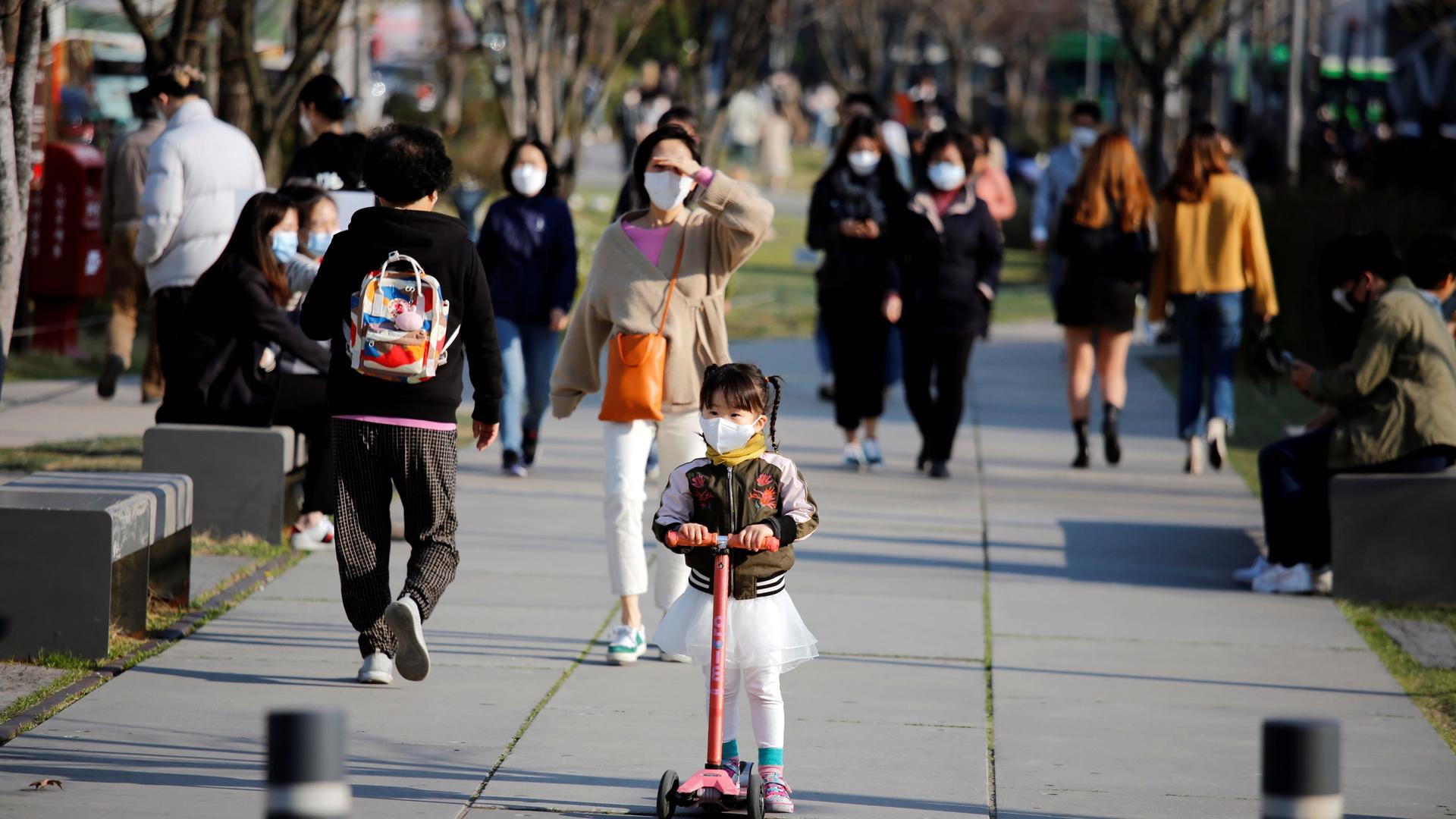People all around the world are staying indoors and “social distancing” to protect themselves from the disease caused by novel coronavirus, COVID-19. But in South Korea, one group of people are on the road more than ever: delivery workers.
Even before COVID-19 swept through the country, causing at least 10,062 infections and 174 deaths as of Friday, South Korea had a well-known reputation for being a so-called “delivery nation” — and citizens often jokingly call themselves delivery minjok, which sort of means a “delivery race” or “delivery people.”
Related: Monopoly on COVID-19 treatment would be ‘dangerously stupid,’ MSF doctor says
Woo Ye-jin, a 25-year-old university student, is one of South Korea’s delivery minjok. In the age of the coronavirus, she said that more South Koreans like herself are skipping brick-and-mortar shops and opting for one- or two-day delivery.
“It’s so convenient. In Korea, delivery is fast and cheap. It’s really nice.”
“It’s so convenient. In Korea, delivery is fast and cheap. It’s really nice,” she said, with a laugh.
But these days, South Korea is forced to confront an ugly truth: Convenience can come with a cost. Earlier this month, a deliveryman working for a massive, Amazon-like online retailer called Coupang died on the job. Identified only as Mr. Kim, the man was reportedly found before dawn, lying in the stairwell of an Ansan City apartment building with no elevator.
Related: Will the US ever mimic Asia’s culture of ‘universal masking’?
Ha Woong, who heads a union for Coupang delivery workers, said that Mr. Kim reportedly died of heart failure. However, he thinks his colleague may have been overworked.
“I think he was working under a lot of pressure because of his position as a nonregular worker,” Ha said. “There have been so many more shipments of items recently, and it has been hard to cope with.”
Coupang told South Korean reporters that Mr. Kim was only delivering half of the usual workload because he was a new hire. But Ha isn’t convinced, and wants his employer and other delivery services to ban early morning hours for the sake of workers’ health.
Andrew Eungi Kim, a sociology professor at Korea University, said that South Korea has a reputation for fast, affordable (or free) delivery because of the intense competition between online retailers and restaurants. And although South Korea has made strides in labor rights in recent decades, he says that many Korean workers still don’t feel like they can talk to their bosses about unbearable workloads.
“The company culture is still very top-down, strict, hierarchical, right? Where workers are not really free to challenge or to object to the demands of these superiors.”
“The company culture is still very top-down, strict, hierarchical, right? Where workers are not really free to challenge or to object to the demands of these superiors,” Kim said.
Related: Combat in the world’s biggest conflict areas not slowing down despite COVID-19
For now, Ha will wait until the intense inflow of the coronavirus deliveries is over to further negotiate working conditions with his employer.
“Eventually, I hope we improve workers’ pay and reduce the number of packages we’re expected to deliver every day,” he said.
Mitch S. Shin contributed to this report.
Our coverage reaches millions each week, but only a small fraction of listeners contribute to sustain our program. We still need 224 more people to donate $100 or $10/monthly to unlock our $67,000 match. Will you help us get there today?
